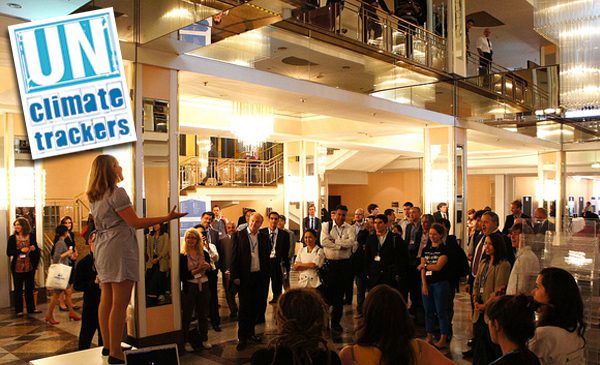
Tracking the two weeks of talks at the UN Climate Change negotiations in Bonn, I have seen some positive signs emerge on the path for a global deal on climate change; however action on climate change is more urgent than ever, especially the role of Australia in putting a price on pollution and reducing emissions.
As reported in one of my previous blogs, the total emission cuts pledged by all countries are not sufficient to prevent global temperatures rising above the two degrees target agreed by governments last year at the UN Climate Change talks in Cancun, Mexico. Releasing figures at the start of the negotiations in Bonn, Oxfam estimates that 60 per cent of emissions cut by 2020 are likely to be made by developing countries.
Australia, the world’s biggest per-person polluter, has a responsibility to set the bar high internationally and commit to stronger targets to reduce emissions through a price on pollution and other measures. Action by Australia will influence how other big polluting countries such as Japan, USA, Canada and New Zealand tackle climate change.
The talks also failed to provide funds for the Climate Fund set-up in Cancun to provide life-saving support to help the world’s poorest people fight the effects of climate change. Sadly, the world’s leaders are still not sure where the money, up to US$100 billion a year by 2020, will come from.
On day seven of the talks, some merry men and women arrived in Bonn reminding everyone of the Robin Hood Tax – a small levee on transactions of financial institutions – which could raise billions of dollars for the fund to tackle climate change and poverty every year. You can take action today by writing to your local MP and the Treasurer, Wayne Swan, asking that Australia support a Robin Hood Tax.
Playing a mostly positive role at the negotiations, Australia managed to obtain greater access and participation for Non-Government Organisations and included agriculture and food security in discussions around how poorer countries will adapt to the impacts of climate change.
Back in Australia, the debate on climate change continues to heat up. With Tony Abbott’s plan for a plebiscite on a price on pollution failing, coming a week after Ross Garnaut and the Productivity Commission released reports calling on Australia to do its fair share globally to reduce emissions and put a price on pollution.
You can become a Climate Tracker today and pressure the Australian Government to put a price on pollution and play an active role in getting a global agreement on climate change.
In a few weeks, I’ll be going to Canberra to meet with Australia’s lead negotiator, Louise Hand and will compile some key points from your comments. So please add comments, hopes and questions to this post…
Clancy
Clancy Moore is Australia’s UN Climate Tracker for 2011